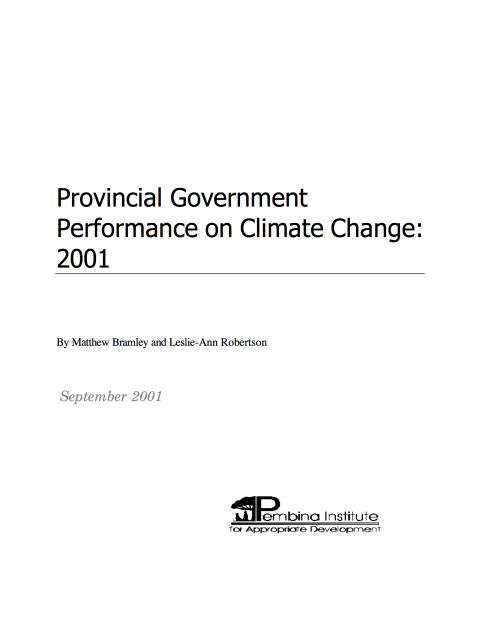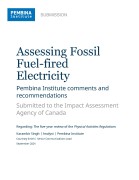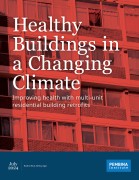The Pembina Institute prepared this assessment to measure the progress of five provincial governments in addressing climate change. The assessment focuses on the provinces that together account for about 89% of Canada's total greenhouse gas emissions. The Institute used the same 38 criteria it used last year in its first assessment of the same five provinces. Nine main areas of potential activity to deal with climate change were assessed: transportation and land use planning, electricity, buildings, industry, facilitating emissions trading, government operations, reducing other sources of greenhouse gases, promoting technology development, and enhancing public awareness and understanding.
All provinces improved their scores over last year, some more than others, but no province has yet received an overall passing grade of 50.
| Prov | AB | BC | ON | PQ | SK |
|---|---|---|---|---|---|
| Score in 2001 | 31.5 | 39.0 | 30.5 | 34.5 | 26.0 |
| Score in 2000 | 26.5 | 30.5 | 27.5 | 22.0 | 20.5 |
| Increase | +5 | +8.5 | +3 | +12.5 | +5.5 |
Provincial governments must be an integral and important component of any Canadian strategy to address climate change. It is a lack of political will-not a lack of policy options-that has prevented provincial governments from more aggressively tackling this issue. With the July 2001 breakthrough in international climate change negotiations and a signal from the Prime Minister that Canada is on the way to ratifying the Kyoto Protocol next year, the provinces need to come to the September 24, 2001 joint meeting of Energy and Environment Ministers with serious measures. The alternative is the increased likelihood that the federal government will feel obliged to take action for them.







